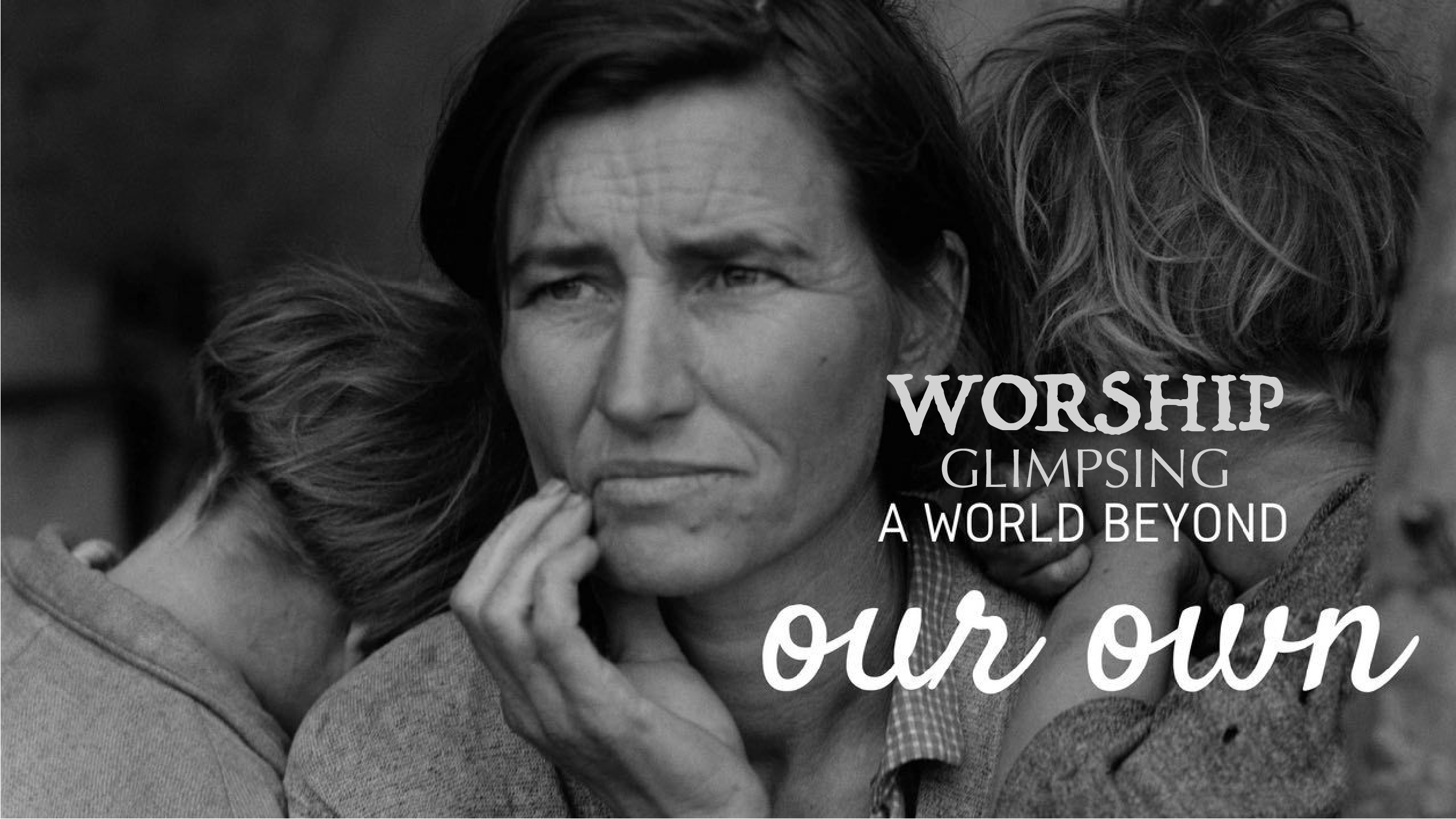
While we often think of Revelation as a book of condemnation and apocalyptic destruction, it’s actually one of pastoral encouragement towards liberation, a theological introduction of an ethic of resistance, and a course-correcting vision quest about how God sees us. Many scholars assert that chapters 4-5 are the center of the book. They provide the overall frame of divine worship. It’s the reason for the words, revelations, and plagues. It points to the end of the vision, chapter 21, in which the new-Exodus people (the Church) are delivered into the freedom of the promised land of the New Jerusalem. It’s a paradise not in faraway heaven, but come down into our problematic, polarized and polluted world. That vision gave radical hope and infused a historical ethic of resistance in the challenging ordeals, suffering, and oppression of the 1st century Roman Empire. It does the same for us in our world of 2018.
The word holy is repeated three times in the chant for the One known as the First and the Last. The word comes from the Hebrew קדוש pronounced [Kadosh] meaning holy, sacred, consecrated, set apart, something that is inherently “other.” John speaks this vision in his pastoral letter after having spoken 7 challenges to the Church, 7 invitations to repent, rediscover the God they have known, to re-envision the daily praxis of faith in Christ. The word worship comes from the old English (and also German) word “hêlig” which means “whole.” It implies that worship is both the action of ascribing worth to that which makes us whole and also becoming whole in that doing of worship. The 17th-century French mystic known as Brother Lawrence wrote that worship is how we become who we are: whole. “To worship God in truth is further to admit that we are entirely contrary to Him, and that He is willing to make us like Himself if we desire it. Who will be so imprudent as to turn himself away, even for a moment, from the reverence, love, service and continual adoration which we most justly owe Him?”
Modern English Theologian N.T. Wright writes in his book Surprised by Hope that the inverse effect is also possible: We become what we worship. “When human beings give their heartfelt allegiance to and worship that which is not God, they progressively cease to reflect the image of God. One of the primary laws of human life is that you become like what you worship; what’s more, you reflect what you worship not only to the object itself but also outward to the world around. Those who worship money increasingly define themselves in terms of it and increasingly treat other people as creditors, debtors, partners, or customers rather than as human beings. Those who worship sex define themselves in terms of it and increasingly treat other people as actual or potential sex objects. Those who worship power define themselves in terms of it and treat other people as either collaborators, competitors, or pawns. These and many other forms of idolatry combine in a thousand ways, all of them damaging to the image-bearing quality of the people concerned and of those whose lives they touch.”
Questions for the practice of Examen & Contemplation
- Can you think of hymns/songs use the vocabulary of this vision?
- How is this worshipful central image of the book different than what you may have expected of Revelation? How might it nurture a theological ethic of resistance?
- God is known first and foremost by creation, and the ongoing creative liberation of the new-Exodus people, called the Church. How are you tempted to close the door on God, living as if we created or manage ourselves? How does worship of our creator, remembering we are “created” free us to be who we truly are? When &/or how have you experienced that in worship?
Download a PDF study guide of Revelation 4:1-11 that we’ll use for our discussion at @CAPCOAKLAND HERE.